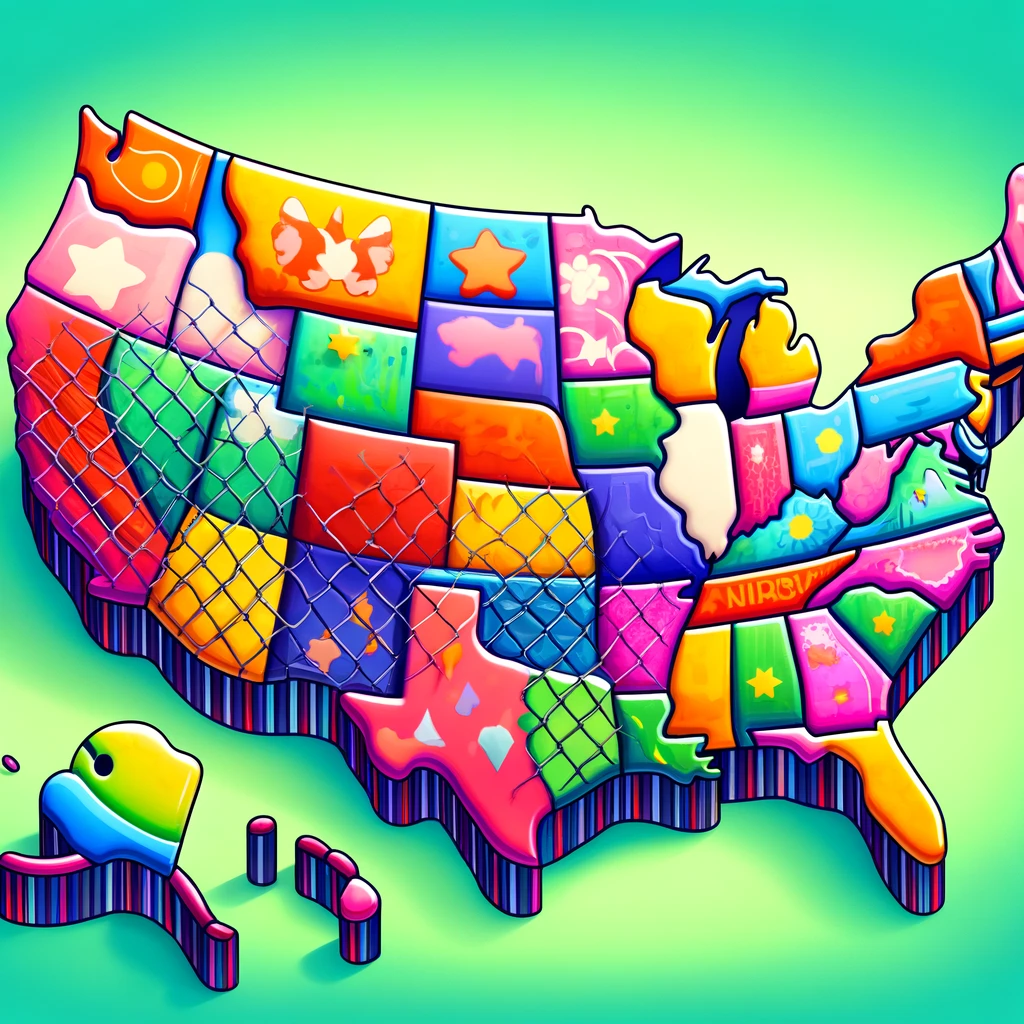
The 2024 election promises to be a pivotal moment in American politics, particularly as it pertains to the issue of immigration, a topic that has been at the forefront of national debate for decades. As the election approaches, immigration remains a divisive issue, shaping the platforms of candidates, influencing voter sentiments, and reflecting broader national values and priorities. This essay will explore the dynamics of immigration within the context of the 2024 election, examining how it shapes and is shaped by political discourse and policy decisions.

Immigration policy has historically been a litmus test for broader ideological battles in the United States, encapsulating differing views on nationalism, economic strategy, human rights, and cultural identity. In the lead-up to the 2024 election, these debates have intensified, with candidates from across the political spectrum weighing in with their visions for the future of U.S. immigration policy. The spectrum of viewpoints reflects a wide array of policy proposals, from expansive, welcoming approaches to more restrictive, security-focused strategies.
The debate over immigration in the 2024 election is likely to center on several key areas: border security, the treatment of undocumented immigrants, the legal immigration system, and the role of the United States as a refuge for asylum seekers and refugees. Each of these areas presents complex challenges and moral questions that candidates must navigate to appeal to their electoral bases while also addressing practical and ethical issues.
Border Security
Border security is often the most visible symbol of a nation’s stance on immigration. For some candidates, the focus on securing the border is framed as a necessity to uphold national sovereignty and security. Proposals in this domain typically include measures such as building physical barriers, enhancing surveillance technologies, and increasing the personnel on the ground. These measures are often popular with voters who prioritize strict controls on immigration, reflecting concerns about illegal immigration and its perceived impacts on safety and public resources.
Conversely, other candidates argue that an excessive focus on border fortification is not only ineffective but also inhumane, serving to demonize migrants and asylum seekers. These candidates advocate for a more integrated approach that addresses the root causes of migration, such as violence, poverty, and political instability in home countries. They call for cooperation with these nations to improve conditions and manage migration flows in a way that respects human rights and the shared benefits of migration.
Treatment of Undocumented Immigrants
The status of millions of undocumented immigrants living in the U.S. is another critical issue. Proposals range from mass deportations and stringent legal penalties to pathways to citizenship or legal residency. The latter policies are often supported by those who see undocumented immigrants as integral to the U.S. economy and society, contributing to everything from agriculture to technology sectors. The debate here often centers on the balance between the rule of law and the recognition of the economic and social contributions of these individuals.
Legal Immigration System
Reforming the legal immigration system is a complex issue involving questions about the numbers of immigrants the U.S. should welcome annually, the criteria for their selection, and the process itself. Some candidates push for increasing the numbers of immigrants to address demographic challenges, such as an aging population and labor shortages in certain sectors. Others take a more cautious approach, citing concerns about job competition and cultural integration. The discussion extends to various visa categories, including those for skilled workers, family reunification, and diversity visas.
Asylum and Refugee Policies
The role of the U.S. as a haven for those fleeing persecution and conflict is a fundamental aspect of its immigration discourse. The 2024 election is likely to see debates over the capacity of the U.S. to host refugees, the vetting processes, and the support provided to asylum seekers once they arrive. This discussion is not only about policy but also about the moral and international image of the United States, with significant implications for its foreign policy and international relations.
As candidates articulate their positions and plans, they will need to engage with these complex issues, each of which carries significant implications for the fabric of American society and its future demographic and economic landscape. Voters, for their part, will be tasked with navigating this multifaceted policy terrain, making decisions that reflect their values, their concerns, and their vision for the nation’s future.
In conclusion, immigration is more than just a policy issue; it is a reflection of national identity, economic priorities, ethical values, and international posture. The 2024 election provides a critical opportunity for the electorate to decide the direction the United States will take on this pivotal issue. As such, it will undoubtedly play a central role in shaping the political landscape of the United States for years to come.
Image depicting a cartoon-style map of the United States surrounded by a whimsical, exaggerated wall, illustrating themes of isolation and protection in a light-hearted manner.
Image featuring a cartoon-style map of the United States, now prominently surrounded by a colorful and whimsical fence, which accentuates the themes of security and isolation.